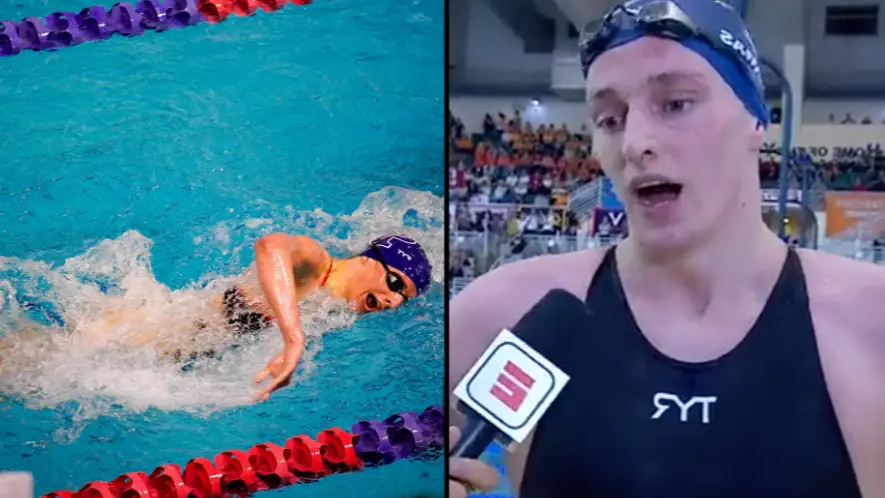
Transgender swimmer Lia Thomas ruffled a few feathers when she was crowned the 500-yard freestyle champion at the US collegiate championships.
Her win prompted boos from the crowd, the ire of critics and a large conversation about trans women in sport.
Pundits, parents, her teammates, Caitlyn Jenner, and a huge chunk of people on Twitter have slammed her win and have argued that athletes who spent the vast majority of their life as biological males have inherent advantages over biologically female athletes.
But The Independent has crunched the numbers to find out if Thomas had an advantage against her competitors and the result is... no.
Thomas began gender-affirming hormone replacement therapy (HRT) nearly three years ago in 2019. As men and women have different levels of different hormones, HRT brings them into line with that of a cisgendered person.
The National Collegiate Athletic Association and the Olympics both allow trans women to compete in women's events after they have been on HRT for a certain amount of time, and as long as tests show their testosterone is below a certain level.
Thomas obviously has met those requirements, or she wouldn't have been able to compete in the first place.
Research conducted by The Independent compiled a dataset of swim times for the top right NCAA women's finishers throughout the last six years of competition.
The data only includes the top college swimmers, including Katie Ledecky's 4m 24.06s record in the 500 yard race. It also includes Missy Franklin's 1m 38.10s record in the 200 yard race. Both of these records still stand.
"In this field, Ms Thomas's time in the 500 yards is the eighth fastest out of 56," Io Dodds wrote for The Independent.
"That is notable because there are only seven events in the dataset, meaning there are some where her time would have only placed her third."
The Independent also looked at numbers for the 500 yard men's race, where: "Thomas has competed at a high level in both men's and women's events, from 2015 to 2021. There, her finishing time is more than 20 seconds below the men's average."
So the data shows that Thomas is not breaking women's records.
But what about Thomas' pre-HRT times and her racing times now?
Before transitioning, her best time in the 500-yard event was 5.6 per cent slower. Her 1,000-yard time was 7.5 per cent slower, and her 1,650-yard time was 7.2 per cent slower.
So despite her levels of testosterone dipping due to HRT - a treatment which drops muscle mass and strength - Thomas is swimming faster now than ever before.
While these are uncharted waters in the swimming world, it all points to one thing: while Thomas is becoming a better and stronger athlete than when she competed in men's races, she isn't smashing records of female athletes either.
If that's the case, how could she have an unfair advantage?
Featured Image Credit: Sipa US/Alamy Stock Photo. @emrimooretv/Twitter.Topics: SPORT, Women's Sport